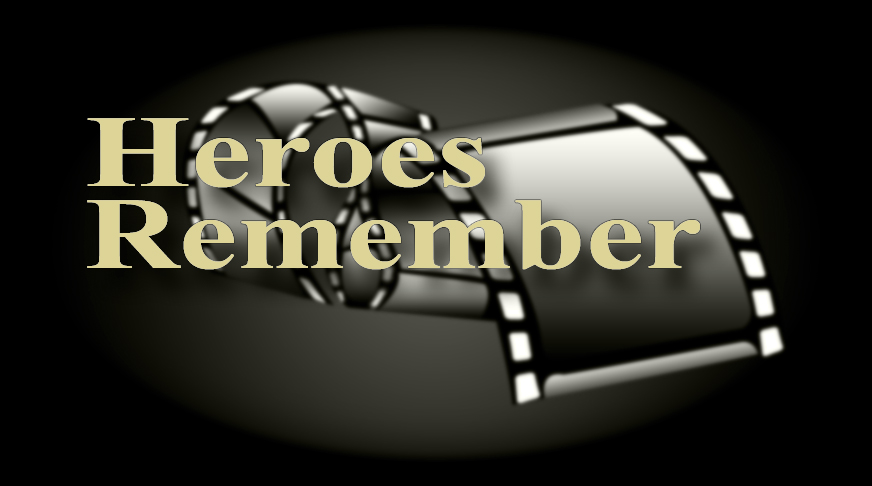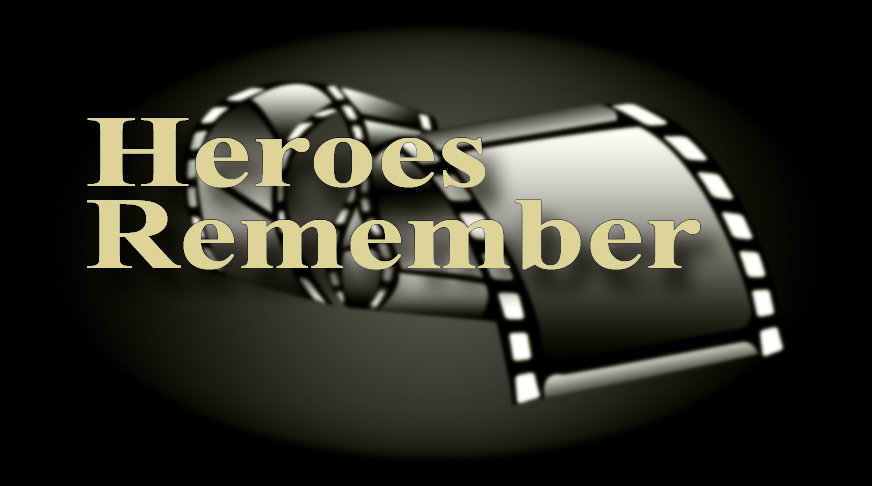Remembrance and the Younger Generation
Heroes Remember
Remembrance and the Younger Generation
Transcript
Well, I would say the world would have been in an awful mess.
We would have been finished. If Hitler had to do it right, he'd
have had the world. He had the best army in the world, he had
everything going for him. If he had have went across to England,
they tell me they had dummy guns in England, wooden guns,
and the reconnaissance planes coming down and looking at them.
They were painted up like steel. They were bluffing them,
and they did come across and they set the Channel on fire
and if they had to leave Russia, he would have been in Canada.
I was talking to, when I lived in Germany, I was talking to a,
a German fellow that survived the submarine corps. His English
was impeccable, he was quite smart because that's a pretty
tough job in the submarine corps, and he told me that they got
into New York Harbour one night. Now that will tell you,
the submarines were in the Sydney Harbour here.
See, people don't realize how close they were, and, you know,
in the North Atlantic and that it was... They were smart.
They were training for years, they were in their, in their
twenties and all... A lot of those paratroopers, they were taken
right up since they were babies, you know. They were
professionals and this is what they had and the propaganda
Hitler had. Just look what he done with those camps.
I seen Auschwitz and all those places. It was terrible.
I'd say that's one of the best things that has happened in my
whole life, I would say that and I had a pretty fair life.
There have been, I had that in my rapport, or whatever you call
it, yeah, I would say I, I'm happy that I was there because I can
look anybody in the eye and go from there and I know what it's
like when you're going out in the morning you don't know if
you're coming back that night, so, and even some poor guys who
were only on one attack, I have a lot of respect for them.
At least they, they put their carcass on the line and, and this
was it but you never heard an argument, you never heard anybody,
they were the finest kind of people. And like I told you,
in the Calgary's, we were all nationalities, yeah.
I would, I would tell them to do everything they could possibly
to make the country a better place to live and get along with one
another and work together. There's too many people today...
It's, I, it's a little different then, even when I was growing
up because it's more dog-eat-dog today, there's not as much
of security. In my time, you went to the steel plant, they paid
pretty good money, you had a job. Today there's, you know,
there's no security like it was but I would tell them to do
everything they could for their country and, and work together,
and, and that's about it.
I think the younger generation it, it, it should be made
a subject in the schools, I don't care what anybody says.
They got somebody, they got all them great speakers today,
and they should have something for the curriculum for the
different schools, I don't care what anybody says.
Start them off a little bit and, and tell them just what happened
and so that they can explain it to them. That's my idea because
a lot of the kids today wouldn't know anything about it, right?
That's, that's my idea, you know.
Interviewer: How much did you know about World War One?
Nothing, nothing.
Interviewer: So, it's history repeating itself?
Yeah, nothing, I know I had nobody that I, I don't know if I had
relative in World War One. No, I knew nothing. All I knew that
I seen a few fellas that were crippled from World War One around
that's all and I asked somebody were they in World War One, no.
I spoke in a few schools in Holland and the kids over there,
they know all about the war, within reason, that's a subject in
their schools. English is compulsory, so they're gonna be
well trained to meet this world, because English is the, is the
language around the world, and they have that. They have their
own language and figure what they are learning about the war.
The only thing that I feel bad about that the young people today,
they don't know hard times like the people that had them
and if ever it comes, they're not going to be ready for it.
But those people that was passed on through their parents
and that, and they're one people that appreciate it.
Even in France they appreciate it. I've been there.
I stayed with a couple one time when I was over to a reunion
in France, and I stayed with them for ten days. They couldn't
speak English. Had a great time in the place, Othis in France
and there was ten of us that were over there.
They had a big do in France and she was Deputy Mayor
of the town of Othis and he ran a furniture store and they,
they couldn't have been nice enough. And that's the way
it is through Europe. They seem to be a little tougher than we.
We in Canada, we're, you know, we had it pretty good.
I think we did anyway.
Description
Mr. MacDougall is asked if it was worth it and would he do it again.
Donald J. (Stan) MacDougall
Donald "Stan the Man" MacDougall was born on November 27, 1924. Mr. McDougall's father was a plumber by trade and he is the oldest of 10 siblings. After completing his schooling, he joined the Canadian Army in Halifax. Then, he was sent to Brampton, Ontario for basic training with the Tanks Corps. From there, he went to Camp Borden for more training in trucks and heavy equipment. He then went to England with the infantry and subsequently fought in Germany, France, Belgium and Holland.
Meta Data
- Medium:
- Video
- Owner:
- Veterans Affairs Canada
- Duration:
- 05:00
- Person Interviewed:
- Donald J. (Stan) MacDougall
- War, Conflict or Mission:
- Second World War
- Location/Theatre:
- Canada
- Branch:
- Army
Related Videos
- Date modified:




